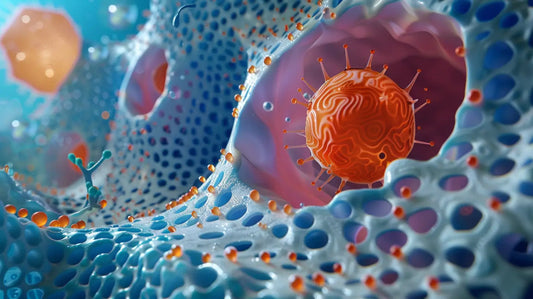What Type of Water Should You Use in a Hydrogen Water Bottle
Updated
John Smith
Staff Writer
Our Commitment to Accuracy and Objectivity
Ocemida is committed to delivering reliable and unbiased information. Our editorial team, comprised of experienced editors and medical experts, meticulously reviews every article and guide to ensure the content is accurate, up-to-date, and free from bias.
Rigorous Fact-Checking Process
To uphold the highest standards of accuracy, we adhere to the following fact-checking guidelines:
Trusted Sources: We only cite reputable sources, such as peer-reviewed journals, government reports, academic and medical associations, and interviews with credentialed healthcare professionals.
Evidence-Based: All scientific claims and data are supported by at least one credible source. Each article includes a comprehensive bibliography with full citations and links to the original sources.
Internal Linking: While we may include internal links to other relevant Ocemida pages for better navigation, these links are never used as primary sources for scientific information.
Expert Review: A member of our medical and scientific expert team provides a final review of the content and cited sources for all articles and product reviews related to medical and health topics.
By following these rigorous standards, Ocemida strives to provide readers with reliable and informative content.
Share with a friend
Key Takeaways
🔑 Best Water Quality: Distilled and reverse osmosis water are the optimal choices for hydrogen water bottles as they prevent damage and ensure maximum efficiency.
🔑 Nature's Blueprint: The best hydrogen-rich water follows nature's three-step process: purification (like rain), hydrogen infusion (like springs), and mineralization (like rocks).
🔑 PEM Protection: The lifespan of your hydrogen water bottle's PEM membrane directly depends on using pure, low-mineral water sources.
🔑 Filter Facts: Common water filters like Brita or refrigerator systems don't provide sufficient purification for optimal hydrogen water generation and device protection.
🔑 Mineral Balance: Adding minerals after hydrogen generation using alkaline sticks creates healthier water than starting with mineral-rich water sources.
The type of water you use in your hydrogen water bottle can significantly impact both the quality of your hydrogen-enriched water and the longevity of your device. This comprehensive guide explores the best water sources for hydrogen water generation and explains how to create nature-inspired, optimal drinking water.
Understanding Water Types and Their Impact on Hydrogen Water Generation
Distilled Water
- Definition: Water that has been boiled into vapor and condensed back into liquid form
-
Pros:
- Free from contaminants and minerals
- Similar to naturally occurring rainwater
- Ideal base for hydrogen water generation
-
Cons:
- Lacks beneficial minerals
- Can taste flat
- Impact on PEM: Excellent choice as it prevents mineral buildup
Reverse Osmosis (RO) Water
- Definition: Water filtered through a semi-permeable membrane to remove impurities
-
Pros:
- Removes up to 99% of contaminants
- Consistent quality
- Excellent for hydrogen water generation
-
Cons:
- Removes beneficial minerals
- Impact on PEM: Very good choice, minimal risk of scaling
Purified Water
- Definition: Water treated to remove impurities through various methods
-
Pros:
- Clean and safe
- Readily available
- Suitable for hydrogen generation
-
Cons:
- Quality can vary by brand
- May still contain some minerals
- Impact on PEM: Generally good, but quality depends on purification method
Filtered Water
- Definition: Tap water passed through a filtration system
-
Pros:
- Removes major contaminants
- Retains some beneficial minerals
- Convenient
-
Cons:
- Variable quality depending on filter type
- May still contain dissolved solids
- Impact on PEM: Acceptable but may require more frequent maintenance
Fridge Filter Water
- Definition: Tap water filtered through built-in refrigerator filters
-
Pros:
- Convenient
- Removes chlorine taste
- Generally improved taste
-
Cons:
- Limited filtration capability
- Variable quality between brands
- Impact on PEM: Not ideal, may contain too many minerals
Brita Filtered Water
- Definition: Water filtered through Brita's activated carbon filters
-
Pros:
- Removes chlorine taste and odor
- Improves taste
- Affordable solution
-
Cons:
- Doesn't remove all contaminants
- Still contains dissolved minerals
- Impact on PEM: Not recommended for long-term use in hydrogen bottles
The Importance of Water Quality for PEM (Proton Exchange Membrane) Lifespan
The Proton Exchange Membrane (PEM) is the heart of your hydrogen water bottle, and its longevity depends significantly on water quality. Here's why:
How Water Quality Affects PEM
-
Mineral Content: High mineral content can lead to:
- Scale buildup on the membrane
- Reduced hydrogen generation efficiency
- Shortened PEM lifespan
-
Contaminants: Various impurities can:
- Clog membrane pores
- Reduce electrolysis efficiency
- Cause permanent damage to the PEM
-
Optimal Water Types for PEM Longevity:
- Distilled water (best)
- Reverse osmosis water (excellent)
- Purified water (good)

Nature-Inspired Recipe for Optimal Drinking Water
The Natural Water Cycle
Nature creates perfect drinking water through a three-step process:
- Evaporation and condensation (like distillation)
- Hydrogen enrichment (in springs and underground streams)
- Mineral absorption (through rock layers)
Recreating Nature's Perfect Water
Basic Recipe:
- Start with distilled or reverse osmosis water (mimicking rain)
- Generate hydrogen using your hydrogen water bottle (mimicking springs)
- Add minerals using alkaline sticks (mimicking rock filtration)
Detailed Steps:
-
Base Water Preparation
- Use distilled or RO water at room temperature
- Ensure container is clean and sterilized
-
Hydrogen Generation
- Fill hydrogen water bottle with prepared water
- Run a full hydrogen generation cycle
- Optional: Repeat for higher concentration
-
Mineralization
- Add alkaline mineral stick
- Wait recommended time (usually 5-10 minutes)
- Gently shake to distribute minerals
Using Ocemida + Alkaline Sticks
The combination of a hydrogen water bottle like Ocemida's 5000 PRO and alkaline mineral sticks allows us to replicate nature's water purification and enhancement process:
-
Hydrogen Generation with Ocemida
- Efficient hydrogen infusion
- Controlled process
- Consistent results
-
Mineral Enhancement with Alkaline Sticks
- Adds beneficial minerals
- Balances pH levels
- Improves taste
Frequently Asked Questions (FAQ)
Q: Can I use tap water in my hydrogen water bottle? A: While possible, it's not recommended as tap water contains minerals and chemicals that can reduce PEM lifespan and efficiency.
Q: How often should I clean my hydrogen water bottle? A: Clean your bottle weekly when using optimal water types, more frequently with mineral-rich water sources.
Q: Why does the type of water matter for hydrogen generation? A: Water quality affects both hydrogen generation efficiency and device longevity. Purer water allows for better hydrogen generation and prevents mineral buildup.
Q: How long do alkaline sticks last? A: Typically 3-6 months, depending on usage and water quality. Replace when mineralization becomes less effective.
Q: Can I over-mineralize my water? A: Yes. Follow manufacturer guidelines for alkaline stick usage times to avoid excessive mineralization.
Q: Is hydrogen-rich water safe to drink daily? A: Yes, when properly generated using appropriate water sources and clean equipment, hydrogen-rich water is safe for daily consumption.
Conclusion
The quality of water used in your hydrogen water bottle significantly impacts both the final product and device longevity. By using distilled or reverse osmosis water as a base, generating hydrogen, and carefully remineralizing, you can create water that closely mirrors nature's perfect drinking water. This approach ensures optimal hydrogen generation while protecting your investment in hydrogen water technology.
Table of Contents










































